
We sail into the village on a gentle wind, my mother and me.
Not like Mary Poppins or that Vianne character from Chocolat.
But not unlike them either.
We’ve come to stay for a time before moving on.
“How long will we be here, Mama?” I ask.
“Do I ever answer that question, Lilly?”
She never does.
A particularly gutsy gust of wind sends me tripping down the hill.
I brush sand and gravel off my knee and hope no one saw me fall.
There is not a soul around though, and the indigo night sky is in my favor.
Mama always says it’s best to arrive at night because then in the morning you look like you belong.
Just for the record, we are wanderers.
This is our life.
Mama says this is the best education a kid could have.
One of these days we will settle, she says. I’d like to try that.
The hill ends in the bowl of the village—or it might be a soup spoon; I can’t tell in the dark.
The ocean which I can’t see must be just on the other side of the shops and restaurants.
I can hear it roaring, crashing.
But it’s the wind with its constant breezy chatter that’s trying to tell me something.
I’ll have to pay closer attention later.
I’m trying to tame the wind.
I’m getting better at it.
That’s my job.
Unofficially.
I tame things in whatever town we stumble into: people, the weather, animals.
I try anyway.
I prefer nature over people.
With nature it’s never personal.
I nearly tamed a fox once.
Mostly because I thought it was a kitten.
I don’t recommend that.
But it’s the wind that has always fascinated me.
And puzzled me.
“I’ll look for a job tomorrow, and we’ll be settled by lunch,” says Mama as we stand, surveying the village under the crescent moon.
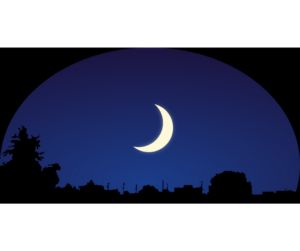
I don’t doubt her.
She’s never wrong.
We find a bench, tucked in the middle of a park, and button our coats together to keep warm.
We use each other’s head as a pillow as we snooze sitting up, keeping our backpacks on our laps.
My mind is a whirl of the possibilities tomorrow could bring.
Who might we meet?
Will we like this place so much that we’ll stay?
But for now there’s the lullaby of the ocean and the whisper of the wind.
I fall asleep.
It seems I’ve just closed my eyes when the first weak rays of morning sunshine poke my eyelids.
Mama asks, “How does my hair look?”
“Like you slept on a bench and walked in the wind.”
She rubs her hands through it.
We stamp our feet on the grass and do jumping jacks to get warm, then parade across the empty park toward a café while Mama counts out the change in the bottom of her purse.
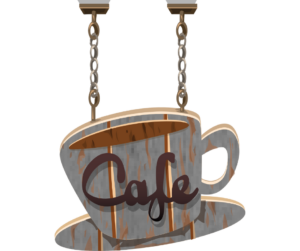
She chats with the barista about the aroma in the shop, and what is that music playing, it’s lovely, and oh, by the way, I would love a new job, is anyone hiring?
Mama is charming.
The barista writes a name on a piece of paper and slips it across the counter.
We get a hot chocolate and zucchini muffin to share and use the restroom.
“Do I look better?” Mama asks.
I nod.
Armed with the name of the woman who runs the toy store, we head out the door.
The village has come alive in the short time we’ve been inside.
The sun is warmer.
The wind gives our hair a mischievous tousle.
What does that mean, I wonder.
“Wait at the park bench for me,” Mama says, handing me her pack. “Wish us luck.”
Mama’s luck is my luck.
I cross my fingers and ask the wind to tickle some hearts into giving her a job.
I think I could like it here.
I’ve barely sat down when Mama comes charging toward me, her coat is bundled under her arm and the wind is redoing her hair.
“Ta da!” she says and pulls me off the bench to twirl me around. “I start this afternoon.”
Hallelujah and thank you, Wind!
The wind and I may be starting something here.
“And the best part is,” Mama continues, “there’s a cot in the office that we can use until we find someplace better.”
She winks.
We both know we won’t find someplace better because, chances are, we won’t be here long enough.
“Can I work there, too?”
“No. But!” She touches my chin before I get surly. “The owner has a little boy who spends too much time on his own and she wants you to watch him. I told her since I homeschool you, you’d have plenty of free time to do that.”
I roll my eyes. “So I’m a babysitter now?”
“This is right up your alley, Lilly. “You can tame him and get him out of the toy store and into the fresh air.”
I can’t tell if she’s serious or making fun of me.
“Oh, brother.”
“Come on. He could be a friend.”
“Why bother having a friend if we’re just going to leave?”
It’s a question I’ve asked before.
She says what she always does: “Because the good memory of a friend is something that you can hold onto long after we’re gone.” Then, she adds, “Besides, she said she’d pay you in hot chocolate and goodies from the café.”
I do like a hot chocolate.
I find Braden, the toy store boy, by accident.
He’s perched on a shelf of stuffed bunnies and teddy bears and other stuffed animals so soft that, with my eyes closed, I can barely feel them against my hand.
He is pretending to be a bear, I think, and I was about to touch him.
“I found you,” I say flatly. “How old are you?”
He doesn’t answer.
“I would expect someone hiding with the stuffies to be about four,” I say, goading him.
“I’m not four!”
It worked. “Five?”
“I’m eight. Who are you?”
He’s small for his age.
“Why aren’t you in school?” I ask.
“Homeschool.”
“Me, too,” I say and introduce myself.
“What does a Lilly have to do with me?” he asks.
His face is full of attitude and his arms are crossed.
“That’s exactly what I want to know. What am I supposed to do with an eight-year-old bear? Your mom says you’re a great kid, but I have my doubts about that. I’m going outside.”
I’ve set the bait.
I walk away slowly, listening for Braden to come walking along behind me.
He’s stubborn all right and waits until I get to the door.
When I open it, he scoots out in front, nearly tripping me.
He’s like a little tornado.
He dashes across the street without looking and runs into the park where he hides under the very bench Mama and I slept on last night.
“Well, that was stupid,” I yell at him. “You could have been killed. Don’t do that again. Why are you hiding?”
Braden shrugs.
We spend the afternoon playing on the slide and the swings, ending at the café with hot chocolate and a cookie.
A bunch of kids crowd into the shop.
School must have just let out.
They give Braden and me a quick glance, then take their fruit shakes and cookies outside.
A couple of them even grant us a smile.
One of them says hi.
Braden shrugs again.
Over the next couple of weeks, I piece together what I learn about Braden, including that shrugging is his favorite form of communication.
He makes sense to me.
He’s a concoction of “Pay attention!” and “Leave me alone!”
He’s a lot like me.
Well, except I would never hide on a shelf of stuffies.
Braden shows me some good hiding spots, and the best place to eat an ice cream cone.
Because of him, I meet a lot of the people who live and work in the village.
We visit the ocean where he and I stand on the wet sand and try to resist the push and pull of the waves, teasing us to come out farther or stay right where we are.
Braden crouches into the sand. “I’m not budging,” he tells me. He points a piece of driftwood at me. “You should try it.”
And as I’ve come to like this village and the people and the funny little shops, I know that I should try it—the not-budging part.
I crouch low, too, and say, “I’m not budging,” like a spell.
I feel nothing though, except a nudge from the ocean telling us that we’ll be carried out to sea if we don’t move higher up the sand.
But it’s the wind, always the wind, that I listen to.
It’s being dodgy, squirmy, thoroughly untamable.
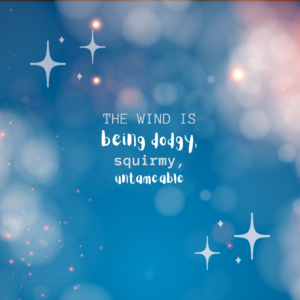
What is it trying to say!
“Let’s go,” I tell Braden, and he pops up as a wave tries to gobble us. “You’re too easy.”
“What do you mean?”
“I haven’t been able to tame anyone else as quickly as I’ve tamed you.”
“You didn’t tame me!”
“I’m pretty sure I did. You were a bear when I met you and now you’re a kid showing me the town. Have you ever done that before?”
He shrugs.
As we walk back to the toy store, his spirit seems to have deflated.
No one likes to think they’ve been tamed, I guess.
Maybe that’s the secret to the wind, too. “Pay attention!” “Leave me alone!”
“You know,” I say. “You’re right about the taming. I can’t tame anything.”
He opens his mouth to say something, which I’m certain will be an insult.
So I hold up my hand to stop him.
“And it’s not because I’m not any good. Taming is fiction. It’s only wishes.”
“What about lion tamers,” he says.
“Nope. They just break the lion’s spirit. That’s not taming.”
“Is that what you did to me?” he asks.
“No, my little friend, I understood you.”
And then I tell him what I know to be true.
“I see a little of me in you.”
His face screws up like I’ve said something disgusting, making me laugh.
“Braden, I’m a lot like you. I would love to stay on a shelf with stuffed animals. Stay in one place. Be safe.”
“Then why don’t you?”
“Because Mama says it’s important to see the world. See and listen and try to understand.”
Braden takes it all in.
“So you understood me out of the toy store?”
I can see his brain working away.
I nod.
“Exactly.”
A new thought forms while the wind spins a whirlpool of sand beside the sidewalk.
“But you know what? Understanding a neighborhood, or the house next door and the people in it is every bit as important as understanding the whole world.”
That night, as Mama and I crawl onto the cot, I blurt, “I don’t want to leave.”
I’m not supposed to say things like this.
I’ve broken our code of silence about this topic.
Mama says nothing.
The wind rattles the door.
I focus on it as it knocks a tree branch against the window, and I imagine it twirling outside the shop.
I hear it murmuring.
Mama hears it, too.
“The wind is settling. We won’t be here much longer.”
She interprets it differently than I do.
She doesn’t understand the wind at all.
I open the window and it lets itself in, blowing into the room and rustling the curtains.
Then I hear it plain as the whisper of a friend.
“Don’t go,” it says.
Its words are a long ribbon as it leaves the room.
“Stay, stay, stay…”
And then it’s gone.
Pay attention.
Leave me alone.
I shiver.
The wind was speaking directly to me.
I feel like it wants me to find out more about this town, about those kids that I saw in the café earlier.
It wants me to know about the ocean.
It wants me to know what it’s like to stay.
I want to know that, too.
This time, Mama is wrong.
“That’s not what the wind is saying. We’ve had a chat. It’s telling us to stay.”
Mama turns out the light. “There’s nowhere to live.”
“I’ll find us a place. Good night.”
I smush the pillow over my head in case she has something to say about that.
When I see Braden the next day, I tell him Mama and I need a place to live, not that the cot hasn’t been lovely.
Maybe he can be as good at finding as he is at hiding?
Plus, he owes me since I got his mother to stop pestering him.
“Did my mother really tell you I’m a good kid?” he asks.
“She did, indeed.”
We walk up the street toward Depot Hill, where there is no train station and no reason for it being called Depot Hill.
We say hi to Mr. and Mrs. Butler and their new puppy, and to Miss Emily, the local writer who gave me a signed copy of her book about a girl exactly my age who lives on an enchanted ship.
The street inclines and Braden and I race the rest of the way to the overlook, where we make our hands into binoculars and observe the village below.
I listen for the wind.
But it’s just babbling.
I guess I expected it to tell me where to look, where to find the home that will allow us to stay.
“Ahoy!” Braden shouts and points his finger in the general direction of everything.
“What?” I squint, raising on my tiptoes to look, then kneeling in the iceplant, opening my eyes wide to see what he sees.
But I don’t see any house at the end of Braden’s pointed finger.
The breeze moves my head to the left.
“Do you see it?” Braden asks.
Maybe Braden and the wind are working together.
There should be something obvious there.
But, “I only see a sign above the coffee shop.”
“Duh! Read it,” he commands.
“I can’t see that far away. You read it.” I need glasses. “For lee-a-see.”
“That’s not a real word. Spell it.”
“L-E-A-S-E.”
I grab his hand and we run to the village, the wind pushing at our backs, and into the café.
“Cindy!” I stand with my hands on my hips waiting for her to stop making Mrs. Pilsner’s coffee drink.
They both turn to me.
“You never told me that you have a place above your café for lease!”
“That’s because the tenant just left yesterday. Said it was too windy up there, that it sounded like spooks at night.”
I’m about to run back to the toy store, but Mama has just walked in.
“Lilly, I was looking for you. By this time tomorrow—”
I listen in the pause to the breeze outside, to Braden crawling under a table, to the words my mother won’t be saying this time.
“—we will be settled,” I finish for her.
The wind blows a door against a wall upstairs, welcoming us home.
I understand.
~end~
Enjoy your week.
~Gail
(Tick tock)
Before you go, don’t forget to sign up for my mailing list, below:
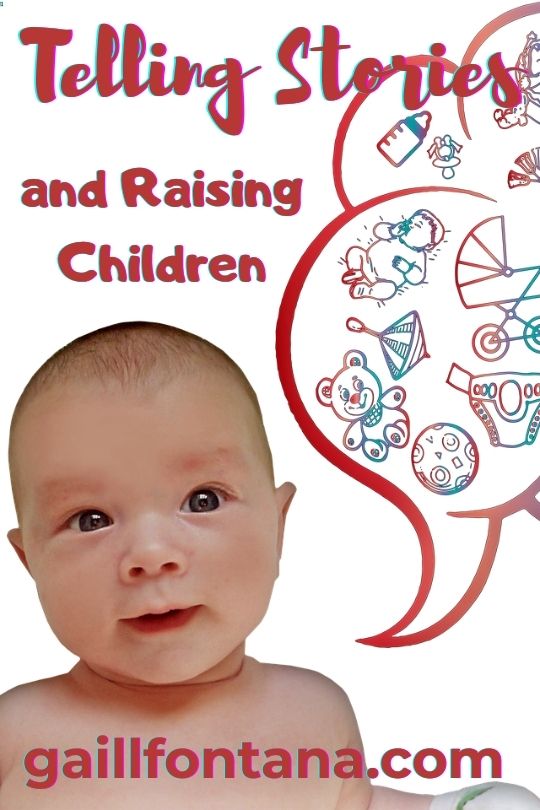




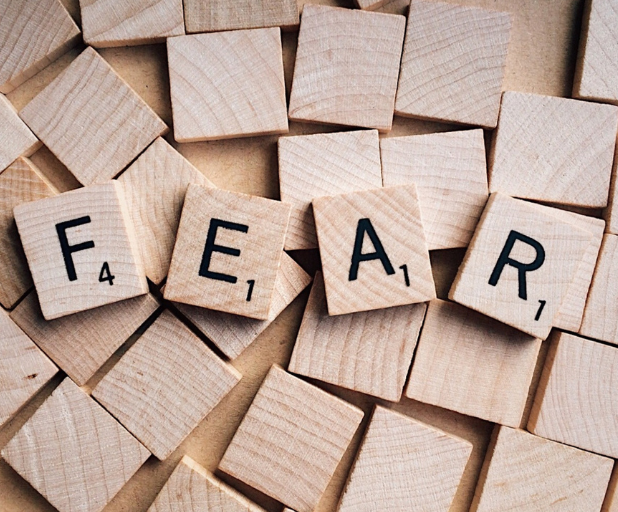
Great story. Do they get to stay?
Hi Lisa. Thanks for reading! Do YOU think they get to stay? 🙂
What a lovely story . Beautiful 🎶
Thank you, Kjersti!